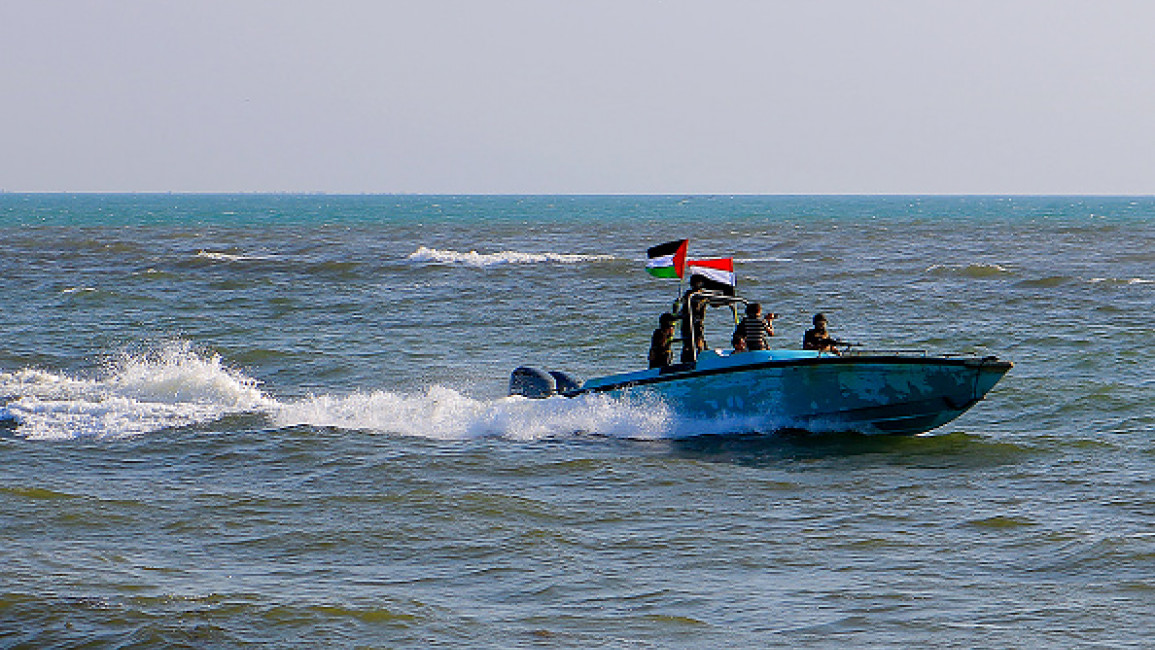Ships use 'no relation to Israel' sign to avoid Houthi attacks in Red Sea
Ships passing through the Red Sea are for the first time using the phrase "We have no relation to Israel" on automatic identification systems to avoid attacks from Yemen’s Houthi rebels, according to multiple reports.
Some commercial vessels passing through the Bab al-Mandab strait, which is situated off the coasts of Yemen and the Horn of Africa, have broadcast some variation of this message to disavow any links to Israel, which is currently engaged in a brutal war on Gaza which has left nearly 25,000 people dead.
On 7 January, Mohamed al-Houthi, a member of the Iran-backed group’s Supreme Political Council, issued a warning that any ship passing through the Red Sea must use the phrase "we have no relationship with Israel" on their identification systems or face attack, in a self-proclaimed show of support for the people of Gaza
Ships from a diverse range of locations, including China, Cameroon, Panama and Singapore, have reportedly complied with the demand to ensure safe passage through the the Red Sea route.
This comes as news emerged on Wednesday of multiple ship insurers starting to avoid covering US, UK and Israeli merchant ships against war risks as they navigate the southern Red Sea. Underwriters are putting clauses into insurance schemes saying "no Israeli involvement", as reported by Bloomberg.
The US-led anti-Houthi Combined Maritime Forces issued a call for ships to avoid Bab al-Mandab at all costs during the peak of the attacks on shipping, but some vessels have continued to use this major trade route.
To limit the threat of attack, they have either turned their identification systems off or used phrases that disassociate themselves from Israel.
This, combined with some insurers refusing to cover US, UK and Israeli vessels, has led many to believe US-UK strikes on Houthi positions in Yemen have had little effect on the rebel group.
Houthi rebels have been attacking merchant ships with drones and missiles since November, launching at least 29 strikes to date in what they say is a self-imposed blockade on Israel via Red Sea shipping due to Israel's war and siege on Gaza.
The US and UK attacked Houthi positions in Yemen on Friday in a series of "retaliatory" air and naval strikes.
The Houthis vowed to retaliate to the strikes and have stepped up attacks on vessels, with two US-owned carriers targeted with ballistic missiles, as well as an attack on a Greek-owned bulk carrier.
This led to more strikes on Yemen from the US and UK on Tuesday.
Yemen's Houthis took over the capital Sanaa in 2014 forcing the rebels to flee south, with a Saudi-led coalition engaging in air strikes against rebel-held positions from 2015, killing thousands of civilians.
Conflict in Yemen has reduced since Saudi Arabia and Yemen agreed to a truce while Riyadh recently criticising US-UK strikes on Yemen.
The Houthis have been criticised by human rights groups for allegedly stealing aid, detaining and torturing journalists and activists, and enforcing a siege on the city of Taiz.


![President Pezeshkian has denounced Israel's attacks on Lebanon [Getty]](/sites/default/files/styles/image_684x385/public/2173482924.jpeg?h=a5f2f23a&itok=q3evVtko)



 Follow the Middle East's top stories in English at The New Arab on Google News
Follow the Middle East's top stories in English at The New Arab on Google News


